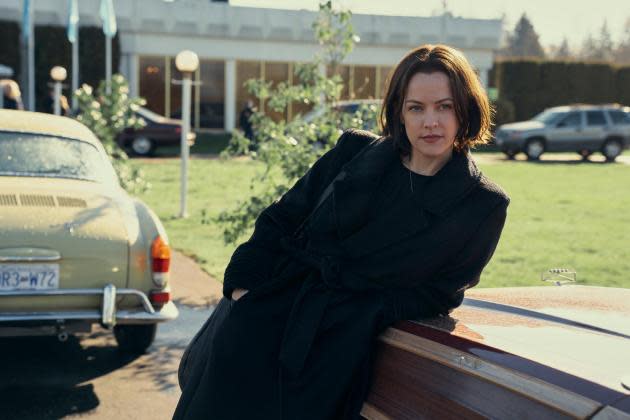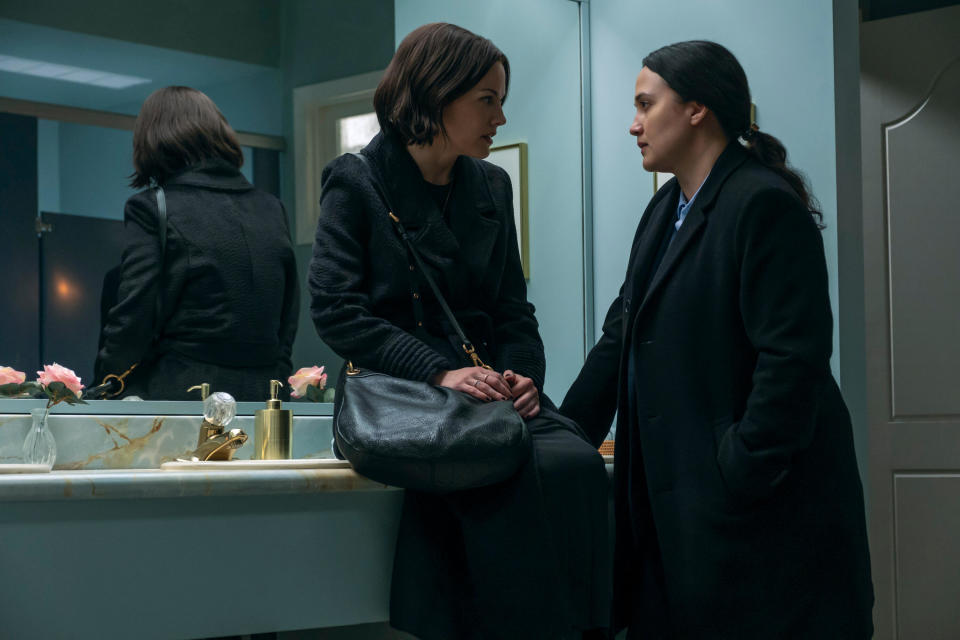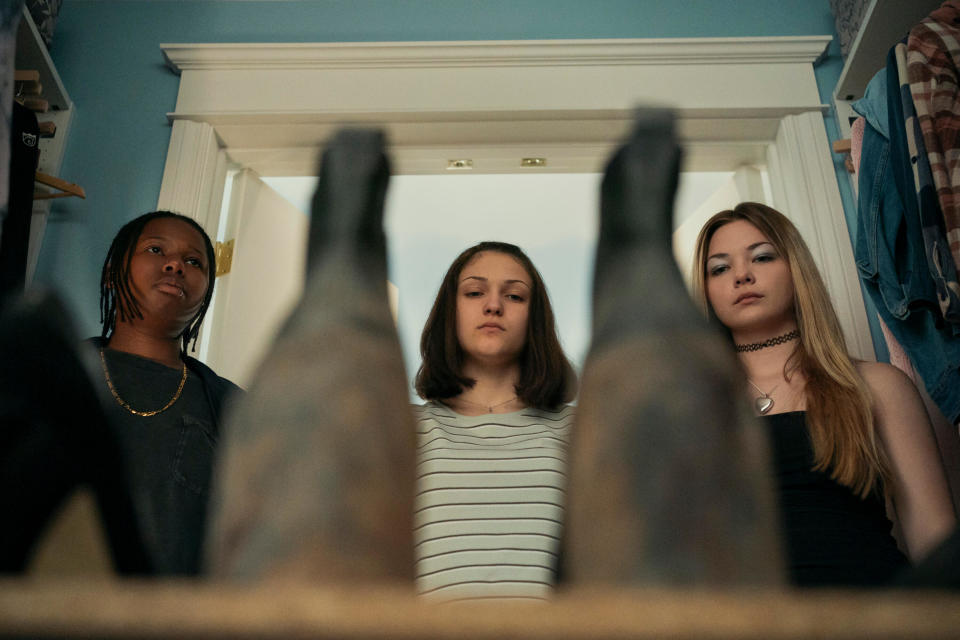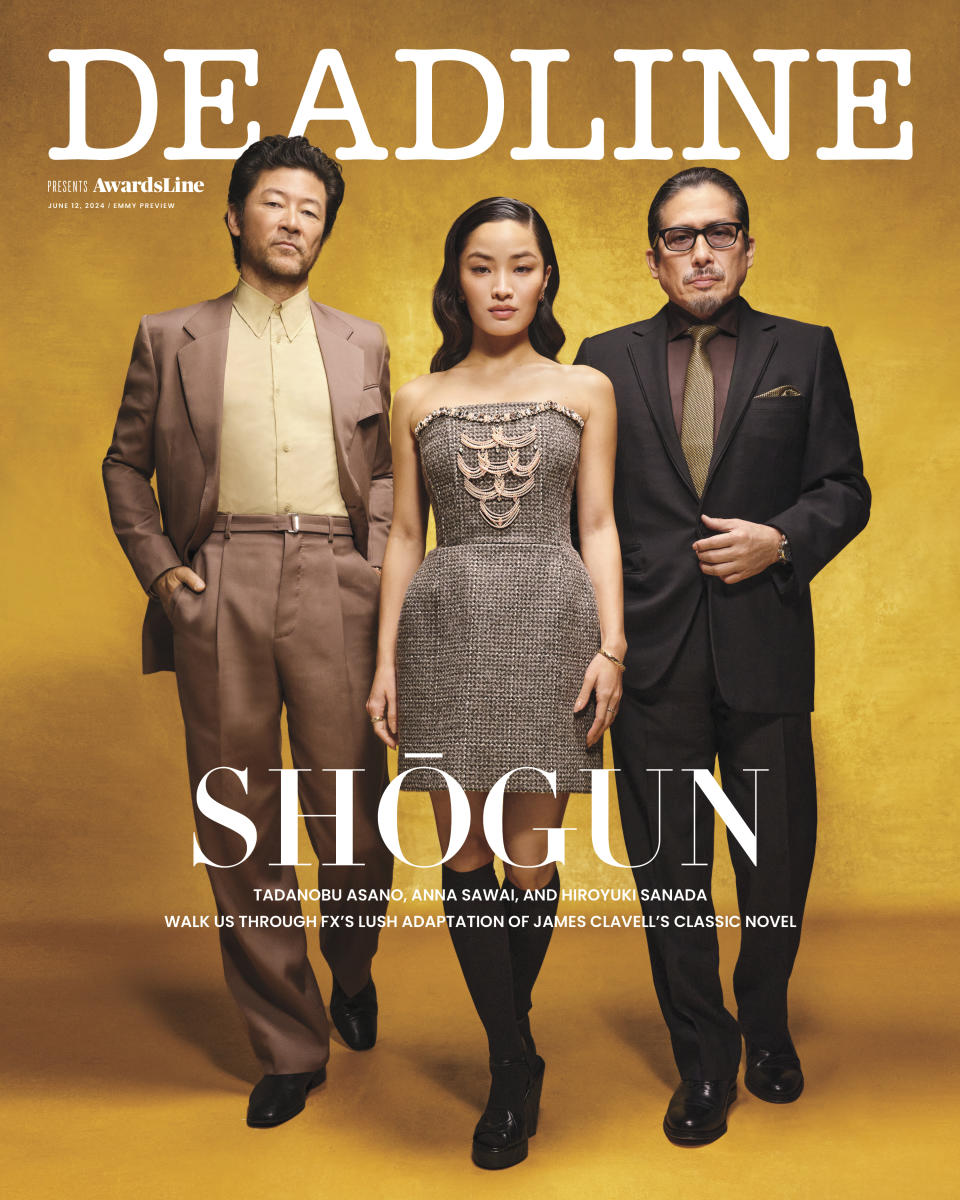‘Under The Bridge’: Riley Keough Explains Why She Was “A Little Bit Apprehensive” About True-Crime Series

In Hulu limited series Under the Bridge, adapted from the book by Rebecca Godfrey, Riley Keough plays journalist Godfrey, as she returns to her hometown to look into the real-life murder of a local girl, 14-year-old Reena Virk. Opposite Keough, Lily Gladstone stars as investigating police officer Cam Bentland, with whom Godfrey has a complicated history. Here, Keough explains how together, the actors explored Godfrey’s “radical empathy” around the murder, and how Keough and her producing partner Gina Gammell collaborated with creator Quinn Shephard and showrunner Samir Mehta to tell a complex and nuanced story.
DEADLINE: Rebecca Godfrey is such an interesting writer and tragically she passed away before Under the Bridge got made. How did you come to understand who she was?
More from Deadline
RILEY KEOUGH: Yeah, she’s incredibly fascinating. Well, first I hadn’t heard about the story or Rebecca, and I hadn’t read her book when I was approached by Quinn and Samir. And then I got the pilot, and I got the ‘bible’, so to speak, and then the book as well. And I was a little bit apprehensive, because when you just get the one line true-crime story about a missing and murdered girl, for me, I was a little like, I don’t know if that’s something I’m particularly interested in doing, because I’m trying to be thoughtful about what I put into the world in my art more and more as I get older. I think that there are many [true crime] stories that are really important, but I think the way in which they’re told can be problematic.
Quinn had put loads of files into Dropbox of her diary entries and her writing, and I just got a little bit more of an insight into Rebecca as a person. I just really could relate to her desire to go further and deeper into something than most people wouldn’t have, and searching for truth in a way that feels a little bit reckless, but ultimately was really brave. I think that there were issues with her book. It was problematic in the sense that it wasn’t really about Reena’s life. So, I think that that was something that Quinn and Samir took into consideration… and Rebecca was OK with that, and I thought that was very cool. She was OK with not being the hero of the story and with her work being questioned.
I felt like she was on a journey that was about this thing, but it was also very internal. And I think that’s where there’s a line that becomes potentially selfish because you have this woman who’s basically inserting herself into a very tragic situation by choice, which is very privileged. And so, I just find it fascinating. I’ve also similarly thrown myself into situations looking for something, some deeper meaning, a deeper understanding of the human condition and human nature, and in questionable situations myself. I really liked that that was a way to explore the genre in itself.

DEADLINE: True crime can feel exploitative, but this is, to me, something different, since we’re seeing it from Rebecca’s viewpoint of “radical empathy”. There’s no black-and-white solution offered.
KEOUGH: In the conversations that I was having with Quinn and Samir on our first meeting, I was like, “I am not a black or white person. The conversations that I want to have about these things are complex, and if I’m going to do this show, I want to be able to have those conversations as much as we can in a way that people can tolerate.”
I think that when you’re dealing with children, people are able to have those conversations more than they are with adults. It’s complicated. I think the show does a really good job at making them all human individuals who are real people, and then you can really explore something when everyone’s a human being. No one’s being used as a device to shove some kind of message or be didactic.
DEADLINE: You’re also an EP on the show. Tell me about collaborating with Quinn and Samir in that sense.
KEOUGH: It was really inspiring because they’re a unit and myself and Gina [Gammell], my producing partner, are really close as well. We’re best friends and also work on everything together. We directed War Pony together. We write together, she runs Felix Culpa, our company, and we’re also very strong, opinionated people. They were so collaborative, and it was our first television show that we’ve produced. And so it was a very fruitful and interesting collaboration.
There were a lot of really nuanced conversations. We were constantly having to ride these lines of non-judgment and just honesty and go, well, if Rebecca says this in this scene, that makes her stance this. There were a lot of more profound and interesting conversations in the collaboration than I’ve had on other jobs, because we all had the same agenda in the radical empathy approach and in the approach to humanize all the individuals involved.
DEADLINE: You physically resemble Rebecca on the show, but it’s a delicate balance playing a real person, especially one who is also no longer with us, right?
KEOUGH: It’s really tricky. I think that Rebecca had wanted me to play her, and knowing that actually weirdly allowed me a freedom because she felt connected to me in a way. I wasn’t actually trying to totally mimic Rebecca, I was playing her from this place of where we both can meet in the middle a little bit, where I relate to her in a way. That felt right to me. I just felt like she trusted me. Of course, I hope that she would’ve approved of it all.

DEADLINE: Have you been able to speak to her family about playing the role?
KEOUGH: Quinn was my main source because Quinn had done all this work [directly with Rebecca] already, and also Quinn’s a writer and an actor. So, she had all the information, she knew Rebecca, and then also was able to, in the moment on the day, go, “This isn’t feeling totally right,” or, “Maybe she would feel more like this here?” So, I had this wonderful resource in Quinn. And if it was feeling way off, then I think Quinn would be able to steer it back. I did meet Rebecca’s husband and her daughter who came to set, and they’re just wonderful. And I’m sure it was a really challenging experience for them to have me dressed as Rebecca. But I think ultimately, they were very happy that she was being honored and that it was being made.

DEADLINE: How did you and Lily Gladstone build the dynamic between your characters?
KEOUGH: Well, we didn’t rehearse, so it was a lot of on the day talking about the scenes before we shot them. The scenes with Cam and Rebecca are just always a little complicated because their relationship isn’t totally clear. There’s not a really clear formula. So, it was nuanced and just figuring out, where are we at this point? How are we feeling in our relationship? It was one of the more complicated relationships on the show, where you’re going, why are they here? What are they doing with each other? What is the agenda? Is this love? Is this trauma? I think that I enjoy playing those more complicated, more real beats.
DEADLINE: Has making the series changed the way you look at crime or extreme behavior?
KEOUGH: I think I’ve had a lot of life experience that has influenced my feelings on those things. I’ve spent a lot of time with people who have been convicted of crimes. I’ve had a lot of experience in that space and the justice system. All of these topics are something I was previously interested in. And so, I think that for me, it’s more like that the show is maybe reflecting things that I already think about a lot. And that was also similar to Rebecca. She essentially had this relationship with [one of the perpetrators] for a very long time, and I think that that could be a very controversial thing, but I think that ultimately, she was just looking for empathy and humanity.
Best of Deadline
'House of the Dragon' Season 2 Release Schedule: When Do New Episodes Air?
'The Boys' Season 4 Release Schedule: When Do New Episodes Air?
Sign up for Deadline's Newsletter. For the latest news, follow us on Facebook, Twitter, and Instagram.


